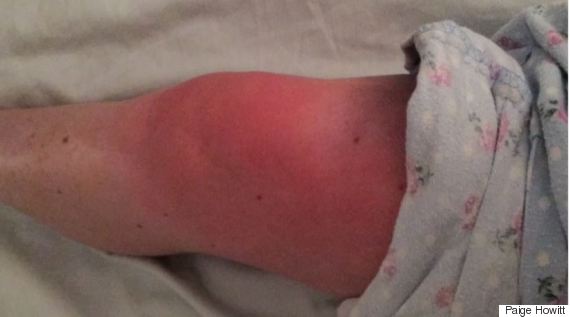Paige Howitt is 23 years old, lives in Bermingham, England and always sleeps next to a refrigerator. Of course it is not by choice but by necessity since otherwise it feels, as he says, like. Specifically, she feels that her left knee is burning, she has muscle spasms, swelling and of course she suffers from insomnia.

The young woman suffers from Multiple Area Pain Syndrome (CRPS for short) which causes the patient to experience an extremely strong pain that resembles amputation of a body part.
According to the story, she had previously undergone treatment that included staying in an oxygen chamber on the one hand to heal, and on the other hand to feel pain relief.
But then she was forced to discontinue treatment as it was costly and the only place she could undergo it was too far from her home.
She is now trying to raise .25.000 XNUMX to buy similar equipment she can install in her home. Until that happens, however, she constantly wraps her foot in ice and keeps it resting on a pillow.
"I only feel partial relief when I keep my leg up and use ice all the time. I even have a fridge next to my bed " writes on the website Just Giving (donation collection platform) "But (s.s. ice reduces blood flow to the foot causing additional problems".
Howitt introduced CRPS two years ago after knee surgery. Severe pain and diagnosis followed. The woman was forced to leave her studies in Nursing and today it is difficult for her to even leave home. "CRPS has changed my life a lot and deprived me of my dreams. I suffer from depression, I have constant anxiety every day that I know I have no other choice I want to give it all up ".

Terms such as algodystrophy, Sudeck syndrome, persistent heartburn have been used in the past for CRPS. It is most often associated with an injury or diabetes but often occurs or reappears without any apparent cause. The treatment of the Syndrome is even more complicated while in some cases it subsides after some time without medical or pharmaceutical intervention or not.
Source: HuffPost
